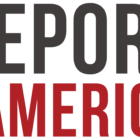See our November 2022 SF Election Guide for a nonpartisan analysis of measures and contests on the ballot in San Francisco for the election occurring Nov. 8, 2022. Voters will consider the following proposition in that election.
Proposition D, dubbed Affordable Housing Now by its creators, is one of two competing proposed amendments to San Francisco’s city charter that would streamline the production of affordable housing projects. It is supported by Mayor London Breed, State Sen. Scott Wiener, District 6 Supervisor Matt Dorsey and several groups focused on housing production at all levels, including the Housing Action Coalition, GrowSF, YIMBY Action, Habitat for Humanity for Greater San Francisco and SPUR, an urban planning think tank. It is also supported by the Nor Cal Carpenters Union. This measure requires more than 50% affirmative votes to pass. In the event that both Propositions D and E pass, whichever measure gets more votes will go into effect, nullifying the other.
Proposition D and Proposition E will go before voters three months after the California Department of Housing and Community Development launched an investigation into San Francisco’s housing policies to examine why the permitting process takes so long in a city with a massive affordable housing shortage — the first investigation of its kind in the state. A November 2021 study found that the median approval time for housing developments in San Francisco was 27 months. While the city is hitting its state-mandated Regional Housing Needs Assessment Goals, it is underproducing affordable housing and overproducing market-rate housing.
Certain new housing developments are subject to approval by various city boards and commissions, and are also required by state law to be reviewed under the California Environmental Quality Act, which has been cited by supervisors in several controversial rejections of housing developments, including a proposed 495-unit mixed-income building at 469 Stevenson. Lengthy permitting processes can increase the cost of affordable housing construction.
Breed initially sought to get this measure on the ballot via a majority vote by the Board of Supervisors, but the board’s Rules Committee voted to table the proposal in January, bringing it to a halt. Breed and allies then changed strategies to get signatures from 10% of the city’s registered voters to place the measure on the ballot. Several donors connected to the tech industry have given large sums of money to help pass Proposition D.
Under this proposal, several types of housing developments would no longer be subject to CEQA review or discretionary approval from any city boards, commissions or officials, as long as they comply with the city’s Planning Code. They would also be protected from lawsuits related to CEQA. Proponents of this bill insist that this is a critical piece of the legislation (which is not included in Proposition E) that “removes bureaucratic roadblocks and political posturing.”
This measure streamlines the approvals process for three specific types of housing: 100% affordable multi-family housing, multi-family housing where at least 80% of units are affordable and 100% of units are for households with at least one San Francisco Unified School District or City College employee, and mixed-income housing that provides 15% more affordable units than currently mandated by the city. (The city’s current mandate is 21.5% affordable units. Increasing that by 15% would make the city’s mandate 24.7%.)
Proposition D also institutes timeframes for the Planning Department to approve projects. Projects with up to 150 units will have to be approved within 90 days of application submission, while projects with more than 150 units must be approved within 180 days. The measure also mandates that construction workers be paid prevailing wages and provided with healthcare, in addition to providing apprenticeship program opportunities. Unions clashed in the public comment section of a Board of Supervisors Rules Committee meeting discussing the labor requirements in the competing affordable housing bill.
Opponents of the measure called it “deceptive” and a developer giveaway, saying that some units in affordable housing developed under the proposition may cost more than market-rate units and noting that the city has already exceeded its state-mandated goals for market-rate housing. Proposition D would allow 100% affordable housing projects to include units for households that make up to 140% of the area median income. The average income of all units in an affordable development would be raised from the current state-set 80% of area median income to no more than 120%, a higher threshold than is allowed under Proposition E.
Those who oppose Proposition D include the Race & Equity in All Planning Coalition, United Educators of San Francisco, the San Francisco Anti-Displacement Coalition, the San Francisco Building Trades, the San Francisco Labor Council and the Council of Community Housing Organizations.









